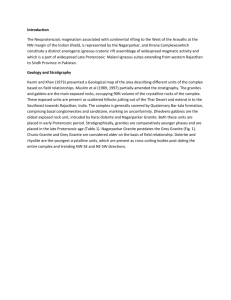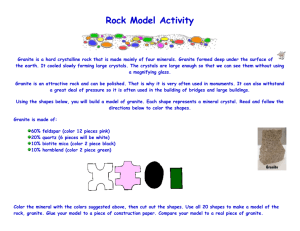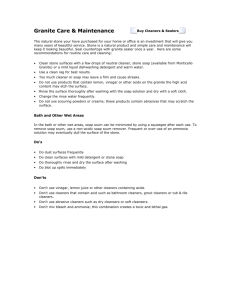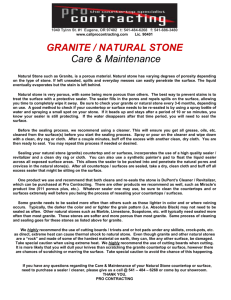Honed Granite
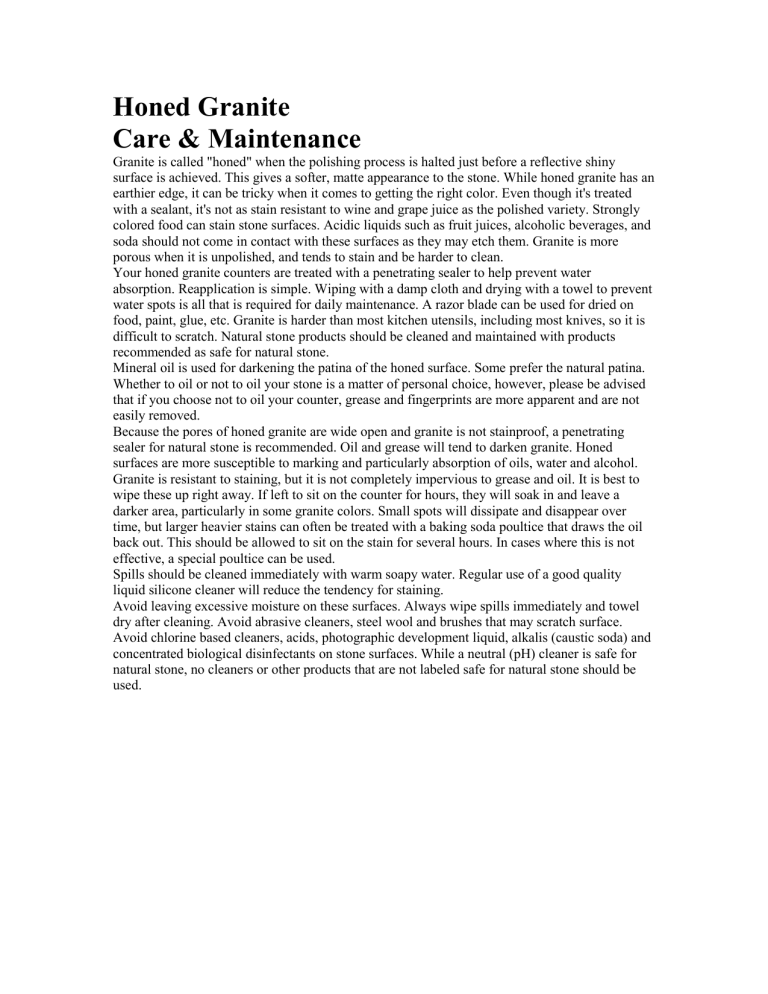
Honed Granite
Care & Maintenance
Granite is called "honed" when the polishing process is halted just before a reflective shiny surface is achieved. This gives a softer, matte appearance to the stone. While honed granite has an earthier edge, it can be tricky when it comes to getting the right color. Even though it's treated with a sealant, it's not as stain resistant to wine and grape juice as the polished variety. Strongly colored food can stain stone surfaces. Acidic liquids such as fruit juices, alcoholic beverages, and soda should not come in contact with these surfaces as they may etch them. Granite is more porous when it is unpolished, and tends to stain and be harder to clean.
Your honed granite counters are treated with a penetrating sealer to help prevent water absorption. Reapplication is simple. Wiping with a damp cloth and drying with a towel to prevent water spots is all that is required for daily maintenance. A razor blade can be used for dried on food, paint, glue, etc. Granite is harder than most kitchen utensils, including most knives, so it is difficult to scratch. Natural stone products should be cleaned and maintained with products recommended as safe for natural stone.
Mineral oil is used for darkening the patina of the honed surface. Some prefer the natural patina.
Whether to oil or not to oil your stone is a matter of personal choice, however, please be advised that if you choose not to oil your counter, grease and fingerprints are more apparent and are not easily removed.
Because the pores of honed granite are wide open and granite is not stainproof, a penetrating sealer for natural stone is recommended. Oil and grease will tend to darken granite. Honed surfaces are more susceptible to marking and particularly absorption of oils, water and alcohol.
Granite is resistant to staining, but it is not completely impervious to grease and oil. It is best to wipe these up right away. If left to sit on the counter for hours, they will soak in and leave a darker area, particularly in some granite colors. Small spots will dissipate and disappear over time, but larger heavier stains can often be treated with a baking soda poultice that draws the oil back out. This should be allowed to sit on the stain for several hours. In cases where this is not effective, a special poultice can be used.
Spills should be cleaned immediately with warm soapy water. Regular use of a good quality liquid silicone cleaner will reduce the tendency for staining.
Avoid leaving excessive moisture on these surfaces. Always wipe spills immediately and towel dry after cleaning. Avoid abrasive cleaners, steel wool and brushes that may scratch surface.
Avoid chlorine based cleaners, acids, photographic development liquid, alkalis (caustic soda) and concentrated biological disinfectants on stone surfaces. While a neutral (pH) cleaner is safe for natural stone, no cleaners or other products that are not labeled safe for natural stone should be used.


